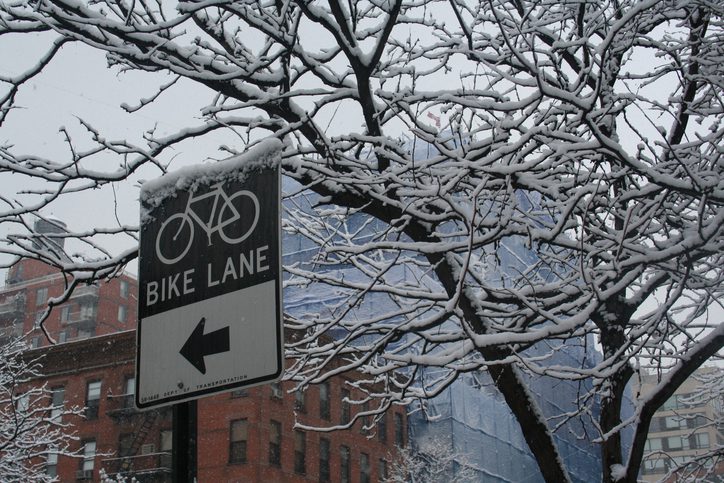How cycling infrastructure affects our health and happiness
University of Waterloo doctoral candidate Robin Mazumder discusses how urban design affects us physically and mentally

Robin Mazumder is a University of Waterloo doctoral candidate in cognitive neuroscience who will be presenting at the fifth Winter Cycling Congress that takes place February 8 to 10 in Montreal. Mazumder studies how urban design affects mental and physical health, and the perspective he brings to the conversation on winter cycling is informed by his own life experiences. Having worked and studied as an occupational therapist in mental health in Canada and internationally, he has helped to rehabilitate patients of different walks of life. What he has observed is that there is a strong dynamic between people and their environments which has led to his current research.
“Disability is often a product of disconnect with your environment,” he explains. “We are studying different elements of urban design to understand how they impact people.
“We use cognitive neuroscience techniques to measure people’s stress,” Mazumder explains about the research he is doing in collaboration with professor Colin Ellard of the urban realities laboratory at Waterloo. “We can provide policymakers with hard evidence to help make more informed urban design decisions.”
Winter is an isolating time of year for many. The coldest and darkest season of the year can make it hard for people to get around to connect with their neighbours and communities. Mazumder says, “Cycling infrastructure allows municipalities to take an equitable approach to modes of transportation that gives everyone a dignified manner to get around.”
Building segregated bike lanes in many parts of Canada where winter wreaks havoc on our streets, is so valuable because it has measurable impacts on people’s mental stresses Mazumder explains. During winter, slippery roads can be perilous for cyclists. A fall on a protected bike lane results in a bruised butt while a fall on an unprotected street could have much more serious consequences.
“Winter really drives home the point of why bike lanes are so important,” he says.
Another benefit of making cycling more accessible in the winter is physical. “Getting out and exercising in the wintertime is simply good for you. Fresh air and exposure to the sun, particularly in a season when people are less active, has mental and physical benefits.”
Cycling infrastructure can be a divisive issue however and politicians often cater to the majority of their constituents who are drivers. In order to contribute to building urban areas that functionally serve residents of our cities, Mazumder says research and data has an important role to play.
Better understanding our urban environments will help when politicians sit down to consult with the public. “Cities need to get more data to make informed decisions.” The rapid implementation of pilot projects he says is a great way for cities to collect data and show people segregated infrastructure makes cycling a viable means of transportation.
“When there is well thought out and implemented infrastructure there is a community that forms around it. When I was working in Edmonton, a group developed around the bikes lanes that would travel together.” Mazumder says it’s these subtle benefits that demonstrate the real impact cycling can have on people’s lives. “Those who are speaking up are often privileged but it’s important to realize that as a result, more marginalized people get access as well.”
Mazumder says that riding in the winter also shifts people’s perspective including his own. “When I moved to Edmonton and started commuting by bicycle I invested some money in tires for winter. I was amazed how riding in the winter shifted my perspective. I was excited to get outside,” Mazumbre says about his decision to commit to the bicycle despite some hesitation. “This can have a huge impact on people’s mental health. If it changes from a crappy season to ‘I can’t wait to bike to work and get my groceries’ it can be very positive. I would look forward to a fresh snowfall because of how still and quiet it would make the roads. There is something magical about it and there was
“This can have a huge impact on people’s mental health. If it changes from a crappy season to ‘I can’t wait to bike to work and get my groceries’ it can be very positive. I would look forward to a fresh snowfall because of how still and quiet it would make the roads. There is something magical about it and there was playfulness to riding through it. That is very important to our happiness.”

